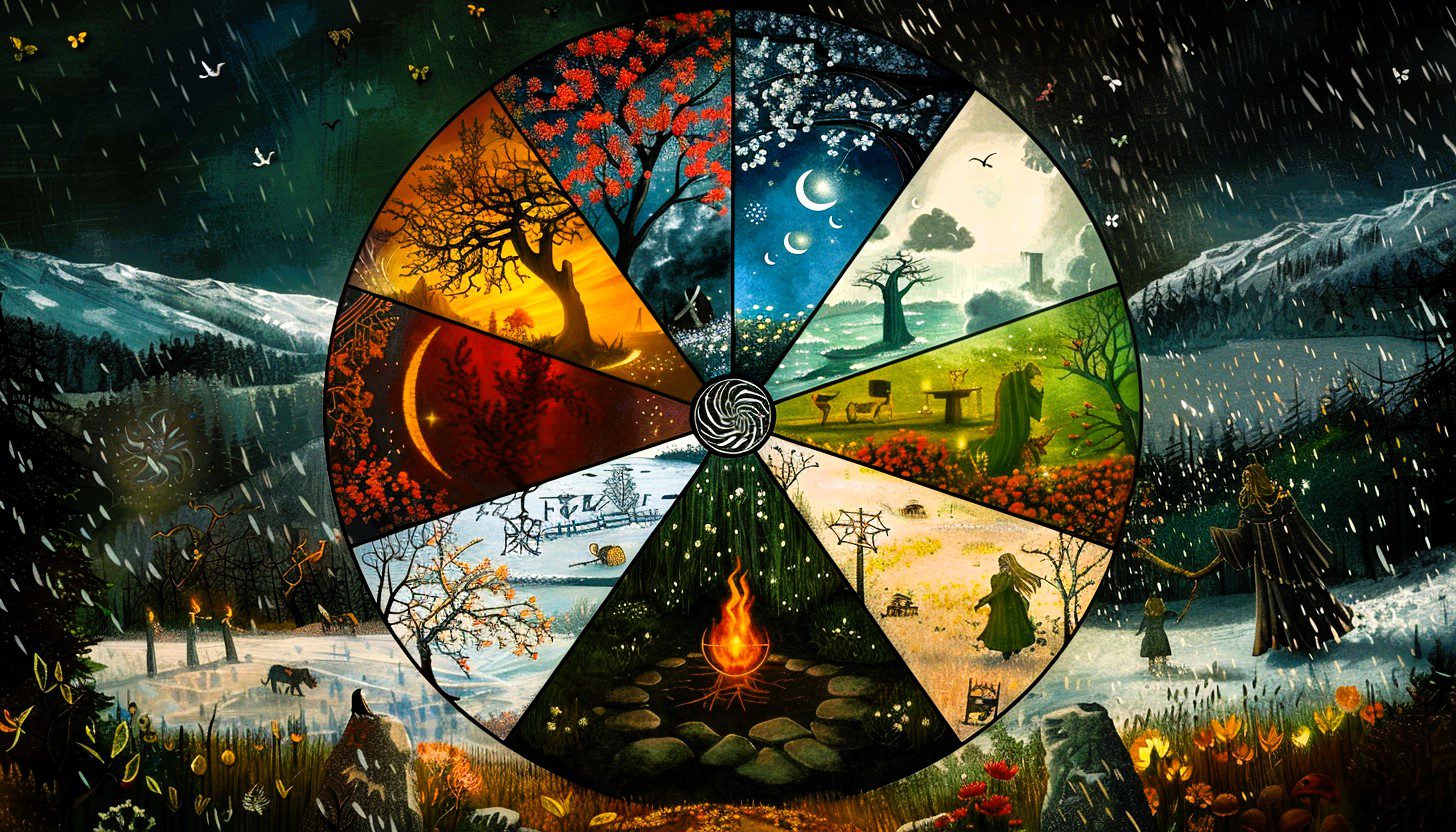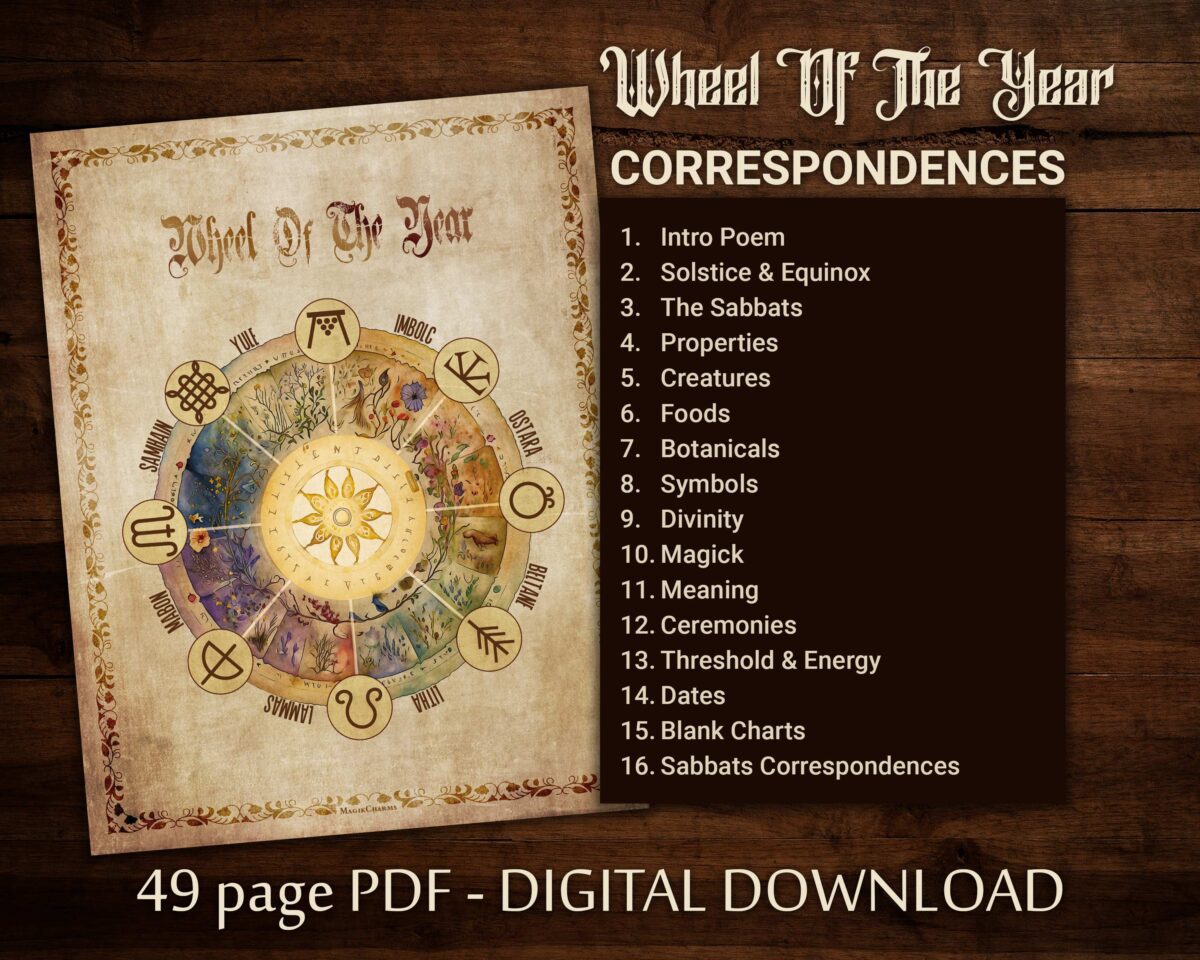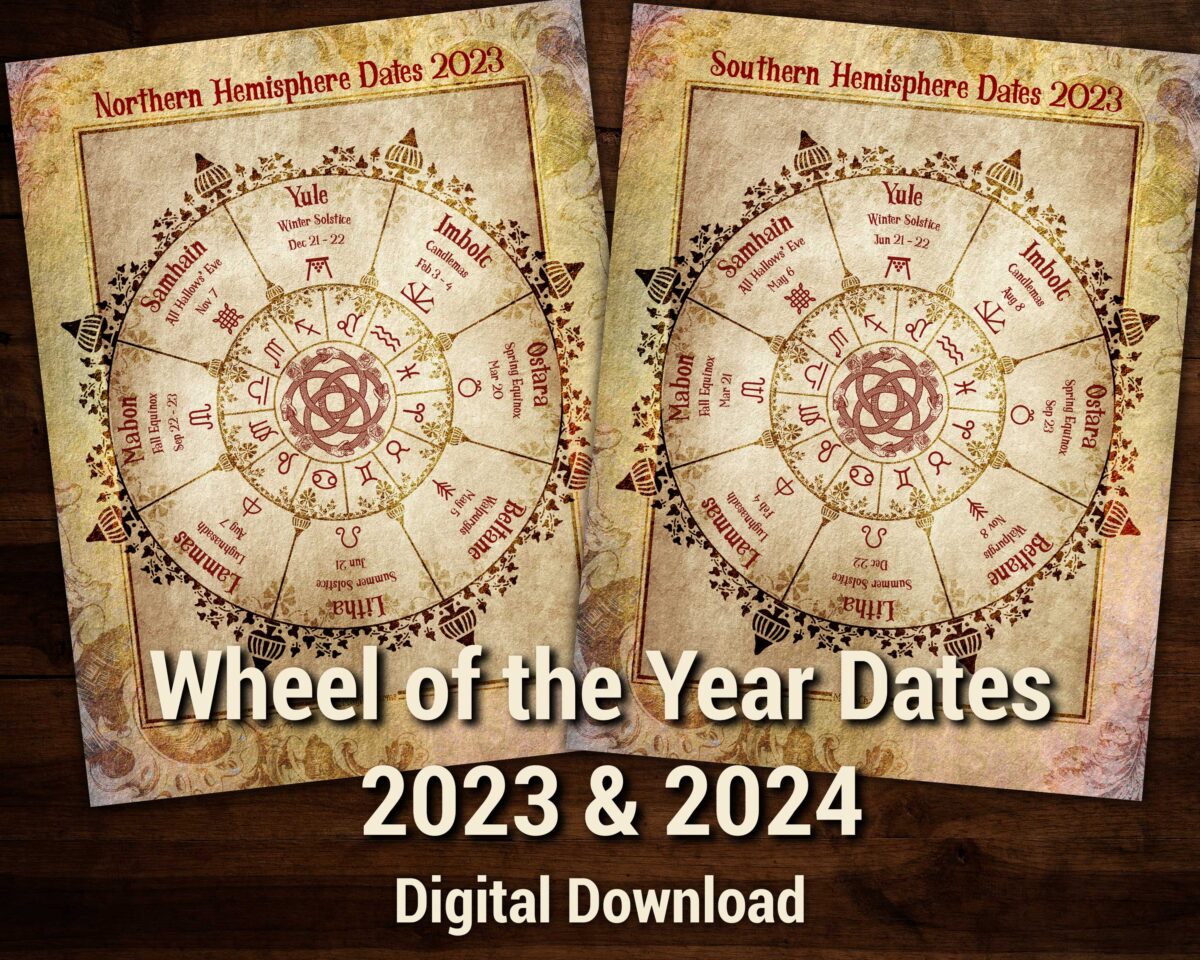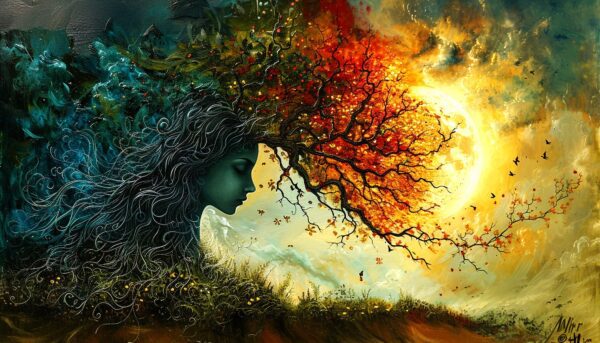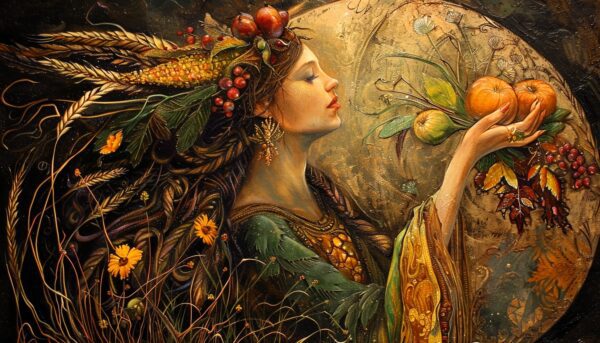Unveiling the Magic: A Beginner’s Guide to the Wheel of the Year and Sabbats
Have you ever felt a surge of energy during the spring equinox or a sense of introspection during the fall? These subtle shifts in nature’s rhythm are observed and celebrated in many cultures through seasonal festivals. In Pagan traditions, this cycle is embodied in the Wheel of the Year, a beautiful tapestry woven with eight sacred festivals called Sabbats.
This guide welcomes beginners, to explore the fascinating world of Sabbats. We’ll delve into the meaning of each Sabbat, provide step-by-step instructions for celebrating them, and unveil the specific dates for both the Northern and Southern Hemispheres.
The Enchanting Wheel of the Year
Imagine the Earth journeying around the sun. The Wheel of the Year reflects this movement, marking the solstices (longest/shortest days) and equinoxes (equal day and night) alongside the midpoints between them. These eight points of power are the Sabbats, each with a unique energy and significance.
Understanding the Sabbats: A Journey Through the Seasons
1. Imbolc
February 1st – Northern Hemisphere
August 1st – Southern Hemisphere
Imbolc, also known as Brigid’s Day, celebrates the awakening of life after winter. It’s a time for purification, creativity, and honoring the returning light.
How to Celebrate:
- Light candles to symbolize inner fire and inspiration.
- Sow seeds indoors, nurturing new beginnings.
- Create art or write poetry to express your creativity.



2. Spring Equinox
Ostara
March 20th/23rd – Northern Hemisphere
September 22nd/23rd – Southern Hemisphere
Ostara marks the arrival of spring, a time of balance between day and night. It’s a celebration of growth, fertility, and new beginnings.
How to Celebrate:
- Plant seeds outdoors, symbolizing new ventures.
- Decorate with spring flowers and colors like green and yellow.
- Hold an egg decorating or hatching ceremony.
3. Beltane
May 1st – Northern Hemisphere
November 1st – Southern Hemisphere
Beltane, also known as May Day, celebrates the peak of spring, fertility, and passion. It’s a joyous festival filled with fire, feasting, and dancing.
How to Celebrate:
- Build a bonfire (safely, with proper permits) and jump over it for purification.
- Decorate a Maypole with ribbons and dance around it.
- Enjoy a feast with friends and family.
4. Summer Solstice
Litha
June 20th/21st – Northern Hemisphere
December 21st/22nd – Southern Hemisphere
Litha, the longest day of the year, celebrates the peak of summer, abundance, and the sun’s power. It’s a time for joy, protection, and expressing gratitude.
How to Celebrate:
- Gather herbs and flowers at their peak potency.
- Build a bonfire to honor the sun’s energy.
- Hold a potluck with seasonal foods to celebrate abundance.
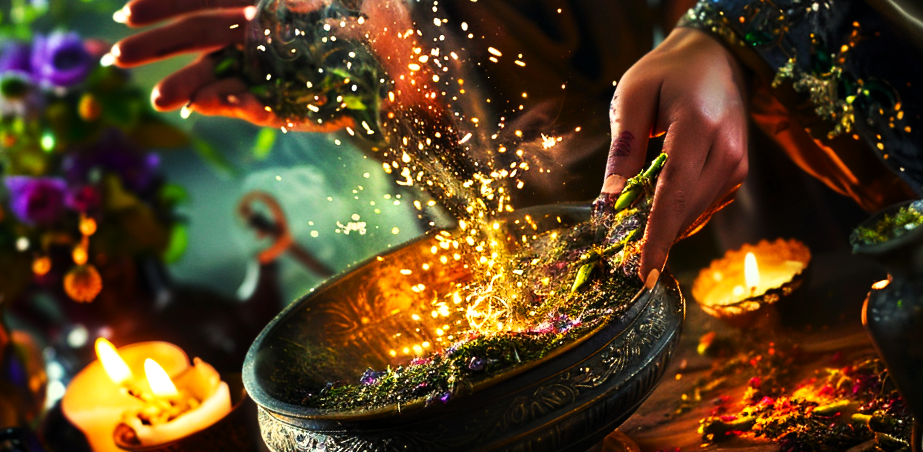


5. Lughnasadh
Lammas
August 1st – Northern Hemisphere
February 1st – Southern Hemisphere
Lughnasadh, also known as Lammas, celebrates the first harvest, the waning summer, and the beginning of preparation for fall. It’s a time for expressing gratitude and community.
How to Celebrate:
- Bake bread from the first harvest grains.
- Create corn dollies or other harvest crafts.
- Host a community potluck with seasonal foods.
6. Autumn Equinox
Mabon
September 22nd/23rd – Northern Hemisphere
March 20th/23rd – Southern Hemisphere
Mabon marks the arrival of fall, a time of balance between day and night, and the celebration of the second harvest. It’s a time for reflection, gratitude, and letting go.
How to Celebrate:
- Create an altar with offerings of gratitude for the harvest.
- Go for a nature walk and reflect on the changing seasons.
- Decorate with fall colors like orange, red, and brown.
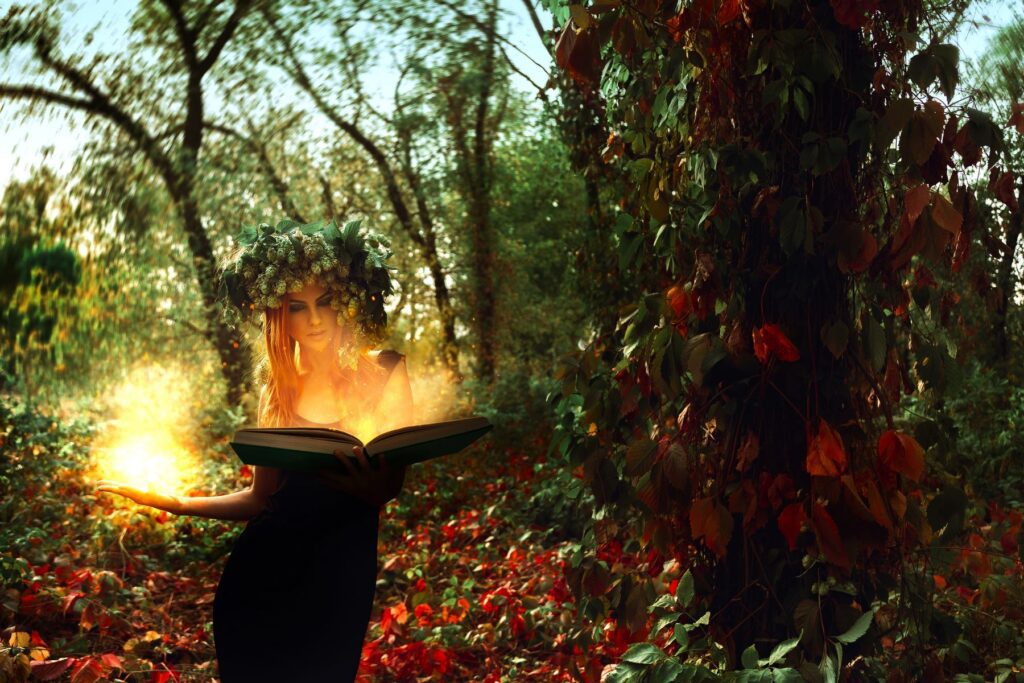


7. Samhain
October 31st – Northern Hemisphere
April 30th – Southern Hemisphere
Samhain, also known as Halloween, is a time to honor the ancestors, the veil between worlds thinning, and the darkness before the light returns. It’s a time for introspection, facing our shadows, and honoring the cycle of life and death.
How to Celebrate:
- Carve a pumpkin and light a candle inside for guidance and protection.
- Create an altar with offerings to your ancestors.
- Practice divination
8. Yule
Winter Solstice
December 21st/22nd – Northern Hemisphere
June 20th/21st – Southern Hemisphere
Yule, the shortest day of the year, celebrates the return of the light, the rebirth of the sun, and the promise of new beginnings. It’s a time for family, feasting, and hope for the coming year.
How to Celebrate:
- Decorate with evergreens, pinecones, and winter colors like red, green, and white.
- Light candles and a Yule log to symbolize the return of the light.
- Gather with loved ones for a feast and gift-giving.
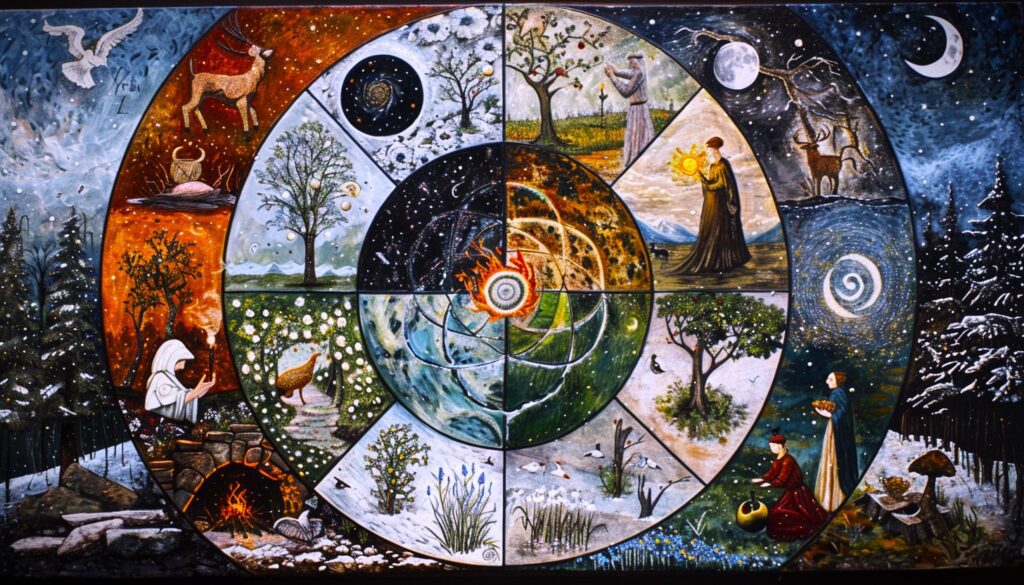


Celebrating Sabbats Across the Globe: Northern vs. Southern Hemisphere Dates
As mentioned earlier, the Sabbat dates differ depending on your location in the Northern or Southern Hemisphere. This table summarizes the dates for 2024:
| Sabbat | Northern Hemisphere (Spring Equinox Forward) | Southern Hemisphere (Autumn Equinox Forward) |
| Imbolc | February 1st | August 1st |
| Ostara (Spring Equinox) | March 20th/23rd | September 22nd/23rd |
| Beltane | May 1st | November 1st |
| Litha (Summer Solstice) | June 20th/21st | December 21st/22nd |
| Lughnasadh (Lammas) | August 1st | February 1st |
| Mabon (Autumn Equinox) | September 22nd/23rd | March 20th/23rd |
| Samhain | October 31st | April 30th |
| Yule (Winter Solstice) | December 21st/22nd | June 20th/21st |
Embracing the Wheel of the Year: A Journey of Self-Discovery
The Wheel of the Year is more than just a calendar of festivals. It’s a profound connection to nature’s rhythms, offering opportunities for personal growth and reflection. By celebrating the Sabbats, you can:
- Deepen your connection to nature: Observe the changing seasons and appreciate the Earth’s cycles.
- Practice mindfulness: Use each Sabbat as a prompt for introspection and personal growth.
- Build community: Celebrate with friends and family, fostering a sense of belonging.
Remember, there’s no right or wrong way to celebrate the Sabbats. Start by choosing a Sabbat that resonates with you and explore simple ways to connect with its energy. As you delve deeper, you’ll discover a wealth of traditions, rituals, and practices that enrich your life and connect you to the magic of the natural world.

